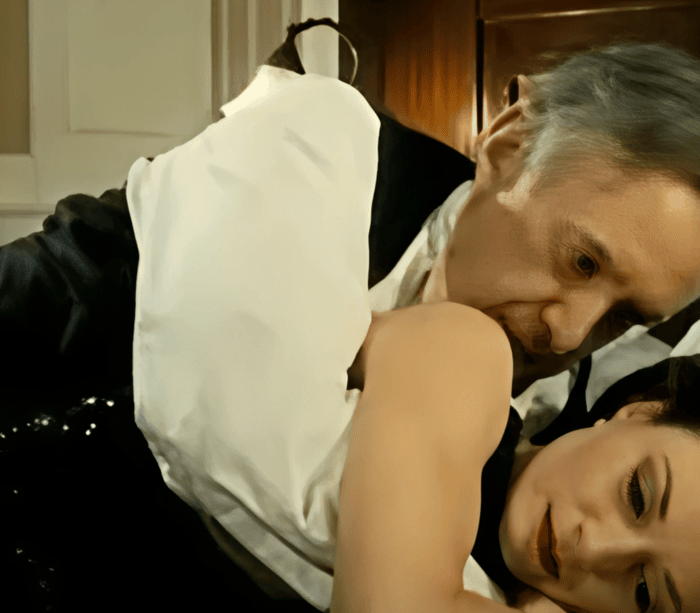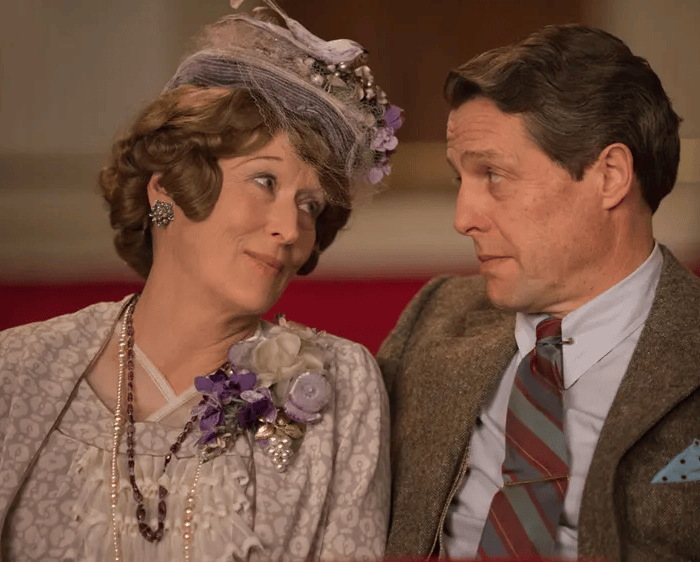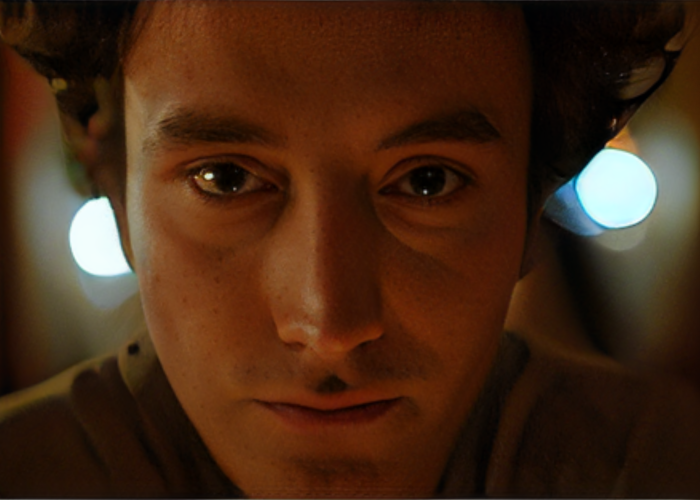
Opera Meets Film: How Takashi Miike’s ‘Audition’ Manipulates / Alters the Emotions of ‘Carmen’s’ Entr’acte
By David Salazar“Opera Meets Film” is a feature dedicated to exploring the way that opera has been employed in cinema. We will select a film section or a film in its entirety and highlight the impact that utilizing the operatic form or sections from an opera can alter our perception of a film that we are viewing. This week’s installment features Takashi Miike’s “Audition.”
The Entr’acte to Bizet’s “Carmen” is the most gentle moment in the entire work. Following the high octane cry to liberty, its delicate texture allows the audience a window in Don José and Carmen’s relationship; or at least what that newly established relationship aspires to.
But once Act three kicks into gear, we realize that that idealized tenderness and passion from the Entr’acte was little more than a ruse. An experience that was never meant to last.
As someone who has seen Carmen many times (more than one can count), it’s easy to overlook this particular musical moment and the impact it has on first-time viewers of the opera, people who go into the opera “blind” without knowing what will happen.
In some ways, pop culture has made it impossible not to know what will happen in Carmen. But even if you go in with expectations, it is rather shocking in many ways that the love and passion between these characters lasts all of, well, nothing on stage. They go from a contentious relationship in Act two to an even more problematic one in Act three before the tragic denouement of Act four.
Either way you look at it, the opera’s decision to throw aside any hopes of romance for its central couple are quite bold. But it goes about it was revolutionary. At its world premiere, the opera was deemed controversial, particularly for the savage murder of the main character onstage.
The same can be said for Takashi Miike’s “Audition.” If you’re interested in watching “Audition,” it’s because you know what you’re getting yourself into. But even then, like “Carmen” for a first-time viewer, there is simply no way that you can anticipate what will come and how it will happen. In much the same way “Carmen’s” iconic, energetic, and hummable melodies lure you away from its brutal tragedy (the opera itself is even officially titled an “Opéra comique” because of its structure and premiered at the Opéra-Comique), “Audition’s” initial “romantic comedy” tone does everything to hide from you the violent horror film that will eventually emerge.
First off, minor Spoiler warning here.
The film relates the story of Aoyama, a TV producer, who after seven years as a widower, is convinced by his boss to audition girls for a fake movie so he can find one to marry. He settles on Asami, an angelic former ballerina who is everything that Aoyama could ever want. So he pursues her. Everything goes off without a hitch and it seems that these two are destined for a perfect marriage.
That is until the film turns on you, leading the way to a violent climax that, back in the olden days of 1999, was shocking for its graphic visuals. Even today they still pack a devastating punch (much like “Carmen’s” violent climax back in 1875), but even by today’s standards, they seem somewhat restrained after decades of torture porn and other more exploitative films.
So what exactly do “Audition” and “Carmen” have anything to do with one another aside from what seems like a tentative connection I am making about their respective experiences on the audience?
“Audition” actually excerpts the Entr’acte from “Carmen” in the film’s second half when Aoyama is out searching for the suddenly vanished Asami. He happens upon her old ballet school where he hears this very piece of music performed on the piano.
To this point, Miike’s musical choices have been rather “soapy” in their approach. In some ways, the romanticism he utilizes exaggerates the developing love affair. It’s over-the-top. The “Carmen” excerpt follows in a similar gentle vein, but Miike’s visuals completely jolt the feeling. Instead of the neutral and naturalistic colors of the previous sequences, suddenly we get some saturation of yellows as Aoyama enters the dance studio. In the distance, we see a piano player on the far end of the room, his back to the camera. This image immediately connects to previous instances in the film when the viewer was introduced to Aoyama and then Asami from behind, both mysteries to the audience. It’s an unsettling feeling that automatically connects itself with “Carmen’s” tender melody, corrupting it in a manner that highlights how the film works on our feelings. Now we associate this melody with the film’s horrific turn and cannot undo that feeling.
So when this music returns in the film’s final 30 minutes, we know things are going to go south quickly. We’ve already been primed for it, but the music’s reappearance doesn’t give us the gentle sense of tranquility it originally has in Bizet’s opera but cues up more dread.
But the “Carmen” motif and its subversion can also be viewed in a textual light, in many ways reflecting on the film’s own narrative and how Miike is constantly subverting gender roles and expectations. Bizet’s “Carmen” has had a similar impact since its premiere, presenting a proactive and potent heroine in an art form where women were constantly portrayed as subjugated. Even if Carmen’s fate follows in line with that of other misogynistic portrayals, at the very least, she is given agency throughout. She isn’t a mere victim.
Asami was also viewed in a similar light back when she brutalized audiences in 1999. And while her actions in the film’s final half are horrendous, Miike’s brilliance comes from not playing her up as the villain. He constantly works on the moral grey between her and Aoyama. As she tortures Aoyama’s paralyzed body, she tells him that he has no right to call in women for auditions, only to later reach out to them for sex. Aoyama, while not originally being interested in the fake audition scam, nonetheless plays along AND wastes dozens of women’s time to get to Asami. He is also shown to be callous to other women, fantasizing about his housekeeper’s sex life even if he doesn’t pay attention to her casual conversations with him. We learn that he had a brief affair with his secretary and has not even considered the emotional consequences of this choice. He even fantasizes about his son’s high school crush! In essence, he is a walking and talking version film executive who uses women and tosses them aside.
While Aoyama never descends to the murderous madness of José (though his prolonged dream sequence is nothing if not madness), the audience is made privy to his own problematic nature, which allows Miike a wider range of moral complexity in the film’s final moments. That undeniably matches up with the finale of Bizet’s “Carmen” where our heroine is murdered by a man we were meant to empathize with throughout.
“Audition,” like “Carmen” is constantly subverting our expectations.
Categories
Opera Meets Film

